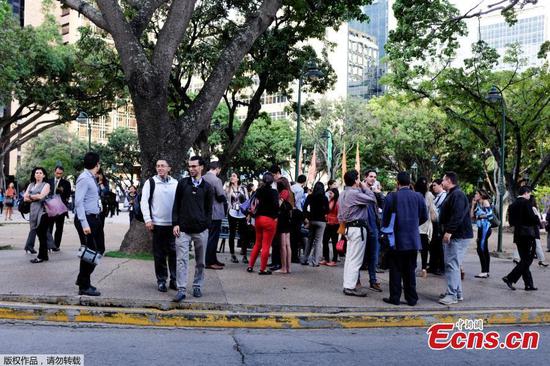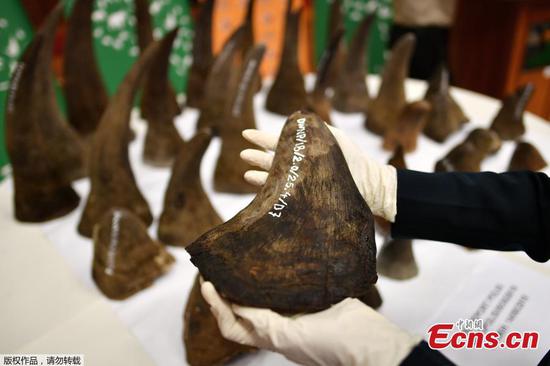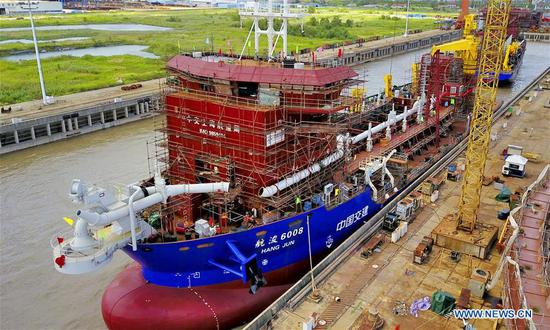"I think he (Trump) genuinely believes that bilateral trade deficits are bad. He is not the only one. He is just the loudest voice," Lester said.
Henry Levine, a senior adviser at consulting firm Albright Stonebridge Group and former U.S. deputy assistant secretary of commerce, said Trump's decision to impose punitive tariffs on China reflects two of his deeply held, long-term beliefs. These are that trade is a zero-sum game and that other countries have for decades been taking advantage of the U.S. by running trade surpluses with it and depending on it for security guarantees without paying their fair share.
Most economists disagree with Trump's view on trade deficits, and Lester said he could line up 1,000 economists to explain why it is misguided. The U.S. has been running a trade deficit every year since 1976, a deficit caused largely by U.S. fiscal policy, the low domestic savings rate and the role of the dollar as a global reserve currency.
The country's trade deficit with China is misleading to the public, as China has become a multinational assembly line. The often-cited example is the iPhone, which has components from around the world. China adds about $10 in labor costs, but this is calculated as more than $300 in Chinese exports by U.S. Customs.
This saw the iPhone alone contribute $15.7 billion, or 4.4 percent, of the U.S. trade deficit with China last year, according to a Reuters report.
Such complicated global supply chains led Mary Lovely, an economist at the Peterson Institute for International Economics, to conclude that Trump's Section 301 tariffs against China actually disadvantage U.S. producers and harm U.S. allies in East Asia.
David Dollar, a senior fellow at the Brookings Institution and a former U.S. Treasury emissary in Beijing, echoed the view, saying, "As the U.S. imposes tariffs (on China), half of that pain will be felt by other countries". He added that the collateral damage will include U.S. firms that produce and operate in China.
Trump has always blamed China for the loss of U.S. jobs, but most economists believe that it is automation, rather than China or Mexico, that are responsible for U.S. job losses.
Under the administration of Barack Obama, Beijing and Washington engaged in negotiations for a Bilateral Investment Treaty, which was expected to help increase their economic interdependence in the 21st century.
About 150,000 U.S. jobs are now supported by Chinese investment, according to the Rhodium Group.
The Bilateral Investment Treaty talks have stalled under the Trump administration despite the business community's argument that it is one of the Trump-favored bilateral deals that is good for the U.S..
The Trump administration has supported tighter restrictions on Chinese investment in the U.S., especially in the technology sector. The Foreign Investment Risk Review Modernization Act, or FIRRMA, which passed both chambers of Congress, was signed by Trump on Aug 13 as part of the National Defense Authorization Act.
While FIRRMA does not claim to specifically target Chinese investment, Chinese FDI in the tech sector is expected to face the toughest scrutiny under the new law.


















































